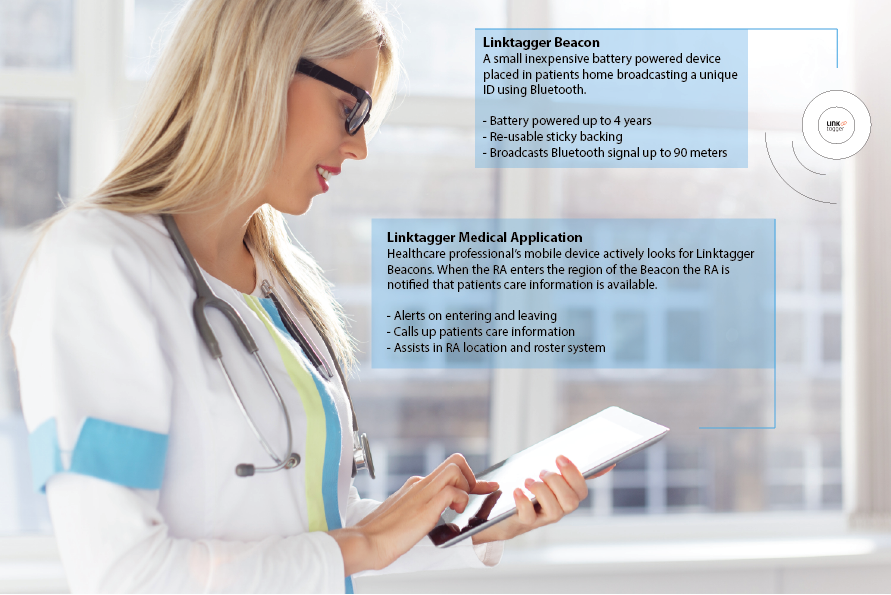Apps, AR, Design, Healthcare, IoT, UX/UI
Improving Stroke Patient Care for NHS
I worked with Sheffield Teaching Hospitals Trust to develop a solution to improve in-home care provided to stroke patients upon discharge from the hospital. The first 6 weeks is critical for a stroke survivor, and with the ever increasing strain on our social care, staff are often overstretched which can lead to inconsistency in the care provided, with often some unfamiliarity between the caregiver and the patient.
Below is a transcript from the internal bid document describing the project:
Changing demands on health services create an imperative, recognised by the ‘NHS Five Year Forward View’, to better integrate health and social care and encourage multi-disciplinary approaches to care and support. The Francis Report further highlighted the need to ensure good communication between all those involved in the care of patients.
A major part of the current strategy is to support older people in their own homes to prevent hospital admissions or to facilitate early discharge from hospital. Rehabilitation Assistants (RAs) are a key resource in facilitating ‘Discharge to Assess’ and providing timely support to enable patients to remain at home while undergoing treatment and therapy.
RAs and their managers currently rely on non-standard spreadsheets, paper and the telephone to share information about patients they support. This project aims to exploit technology to ensure comprehensive, accurate and timely access for RAs to information about patients and their care and support needs. It aims to contribute to improvement of the patient experience through a more holistic and personalised approach to the delivery of care and support.
RA managers schedule RAs using spreadsheets which compromise good time and logistics management, lack feedback capabilities to implement stops and checks, measure and analyse potential causes of inconsistencies in patient care and support. This project aims to address all these issues to enhance efficiency and effectiveness.
The MediTag solution will provide sensors for patients’ homes that communicate and interact with visiting RAs’ smartphones and devices. This would create a mechanism for providing up-to-date care information for the patient being visited and tailored prompts to ensure all care needs are met. Linking patients’ homes in this way will ensure that RAs’ visits can be passively logged through an up-to-date data stream which enables a logical real-time tracking.
The proposed solution will simply link patients’ homes using Bluetooth beacons to NHS-held data and present this on a mobile device in a user-friendly familiar app format. The beacons neither hold nor access data. They are merely a proximity sensor which signals pre-authenticated devices to retrieve relevant data.
Other key benefits of the proposed solution are its low running and deployment costs, its use of proven beacon technology, its interoperability with existing mobile devices in NHS service and its inherent potential for deployment at scale.
Importantly, the solution offers an opportunity to streamline and gain added value from existing workstreams without adding to the RAs’ workload by capturing data during in home assessment.
The proposed project will be undertaken within the Active Recovery (Community Intermediate Care) Service in Sheffield, which provides short-term support (re-ablement/specialist rehabilitation) to patients in their own homes with the aim of avoiding unnecessary hospital admissions and facilitating early discharge from hospital. Our project will focus on Stroke patients as an exemplar group of patients benefitting from this service.

